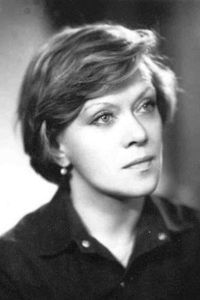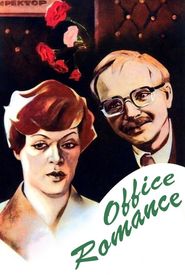Alisa Brunovna Freindlich, a celebrated Soviet and Russian thespian, made her grand entrance into the world on December 8, 1934, in the vibrant city of Leningrad, Soviet Union. Her paternal figure, Bruno Freindlich, was a distinguished actor and People's Artist of the Soviet Union, and her family boasted a storied cultural lineage, with ancestral ties stretching back to both Germany and Russia.
Alisa Freindlich's early life was profoundly shaped by the tumultuous events of World War II, as she and her family endured the grueling 900-day-long Siege of Leningrad, a period of unrelenting hardship and adversity that would have a lasting impact on her life.
Despite the challenges they faced, Alisa's family managed to find a way to continue her education after the war, and she began to cultivate a deep passion for the arts at a remarkably early age.
Intrigued by the world of drama and music, Alisa attended classes at the prestigious Leningrad Palace of Pioneers, where she was able to hone her skills and nurture her creative talents.
This early exposure to the arts had a profound effect on Alisa, laying the foundation for a lifelong commitment to her craft and setting her on the path towards a successful and storied career as a talented actress.
Noted Russian actress, Freindlich, commenced her formal education in acting during the 1950s by enrolling in the prestigious Leningrad Institute of Theatre, Music and Cinema, a renowned institution dedicated to the development of artistic talent in the fields of theatre, music, and cinema.
Upon completing her studies in 1957, Freindlich went on to join the esteemed troupe at Komissarjevsky Theatre in Leningrad, where she honed her craft and gained valuable experience as a professional actress from 1957 to 1961.
Following her successful tenure at Komissarjevsky Theatre, Freindlich joined the Lensovet Theatre company, where she continued to flourish as a talented actress until her departure in 1982, precipitated by her divorce from Igor Vladimirov, the director of the theatre.
Noted Russian actress Freindlich's illustrious stage career has been characterized by her long-standing affiliation with the renowned Bolshoi Drama Theatre (BDT) troupe, a prestigious institution she had the privilege of joining in 1982 under the visionary direction of the late Georgy Tovstonogov, a highly acclaimed theatre practitioner. Throughout her distinguished career, Freindlich has remained a dedicated and integral part of the BDT troupe, continuing to work with the esteemed organization to this very day, a testament to her enduring commitment to her craft and her enduring partnership with the troupe.
Not only has Galina Freindlich showcased her impressive range as a stage actress, but she has also made significant appearances in various notable films throughout her career. One of her most notable film credits includes Eldar Ryazanov's comedy masterpiece, Office Romance, which was released in 1977. Additionally, she appeared in the epic film Agony, which premiered in 1975, and Tarkovsky's thought-provoking science fiction movie, Stalker, which was released in 1979.
Furthermore, Freindlich's television credits are equally impressive, with one of her most notable roles being that of Queen Anne of Austria in the Soviet television series, D'Artagnan and Three Musketeers, which premiered in 1978. This iconic role was later reprised in the Russian sequels, Musketeers Twenty Years Later, which was released in 1992, and Queen Anne's Secret or Musketeers Thirty Years Later, which premiered in 1993.
Notable Russian actress, Freindlich's impressive career in the arts was formally acknowledged with a prestigious state decoration bestowed upon her by the Russian Federation, a gesture of great honor and recognition, coinciding with her 70th birthday milestone. This special occasion was marked by a visit from the Russian President himself, Vladimir Putin, underscoring the significance of this momentous event.
In addition to this remarkable honor, Freindlich's outstanding contributions to the world of cinema were further recognized with a Nika Award in the year 2005, a testament to her enduring impact on the Russian film industry.























